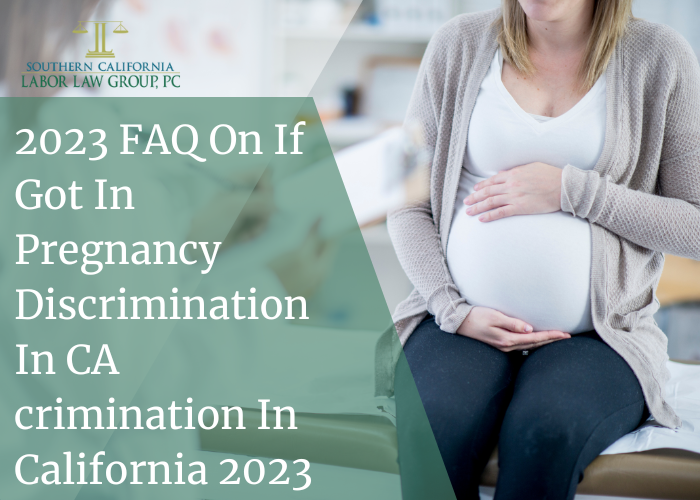Pregnancy discrimination in California is a concerning issue, affecting pregnant working women’s rights. Pregnant employees get protection against unfair treatment under the legislation known as the Pregnancy Discrimination Act. Nevertheless, it matters most to be mindful of your rights and alternatives. In this FAQ guide by the expert pregnancy discrimination lawyers of Socal Employment, we address common concerns related to pregnancy discrimination in CA, offering valuable insights to empower pregnant workers.
List the FAQs below you must be informed about pregnancy discrimination in the Golden State:
- What exactly does the Pregnancy Discrimination Act (PDA) cover?
The Pregnancy Discrimination Act is legislation designed to shield employees who are pregnant in California from unfriendly conduct at work. The following can be performed by ensuring equal consideration in an assortment of scenarios, such as hiring, dismissing, promoting, and other activities at work.
- Can my employer deny me a promotion because I’m pregnant?
No, the PDA prohibits the denial of promotion based on pregnancy. If you are qualified and deserving, your pregnancy should not hinder your career progression.
In California, what are my legal obligations as a pregnant employee?
Pregnant workers in California have the right to reasonable accommodations, such as altered duties, leave off for medical appointments and giving birth, and protection against pregnancy-related discrimination or harassment.
- Does the Fair Employment Standards Act cover pregnant discrimination?
While the Fair Employment Standards Act primarily addresses pay and hour restrictions, it also includes measures that shield pregnant workers from workplace discrimination and unfairness.
- Can I sue for pregnancy discrimination in CA?
Yes, if you believe you have been the victim of pregnant discrimination, you can file a pregnancy discrimination lawsuit to seek justice and restitution. Consult with pregnancy discrimination lawyers for expert guidance on pregnant employee rights.
- Which laws are available to prevent pregnant workers in CA?
The EEOC enforces three federal laws that pregnant workers in the state:
- Title VII of the Civil Rights Act of 1964
- Pregnant Workers Fairness Act
- Americans with Disabilities Act
- What is the link between the Americans with Disabilities Act (ADA) and pregnancy discrimination?
If you have a pregnancy-related disability, the ADA may apply to you. You may be eligible for extra protections and allowances in such instances.
- What exactly is the Federal Pregnancy Discrimination Act, and in what way does it benefit pregnant workers?
This act is a federal statute that improves protections for expecting moms. It requires pregnant workers to make reasonable arrangements, making it simpler for women to keep their jobs.
How We Help You Know Your Rights and Battle Pregnancy Discrimination in CA?
Among the many California laws that our committed team of pregnancy discrimination attorneys is knowledgeable about is the Pregnancy Discrimination Act. We provide expert counsel to assist in recognizing the law and the legal liberties available to you, along with handling the court system against pregnant discrimination. Lawyers at Socal Employment are eager to help you in your pursuit of workplace equal treatment, whether you need help filing a lawsuit or making changes to the way you work.
Conclusion
In the battle against pregnancy discrimination in California, knowledge is your greatest ally. It is of the utmost importance that you know your legal privileges as well as other relevant remedies. You must be mindful of civil rights in the workplace under the law and defensive alternatives open to you. If you are encountering pregnancy discrimination, Socal Employment’s team of skilled attorneys is here to assist you. Note that you have the privilege to have fair behavior in the workplace so, do not compromise your legal liberties. At Southern California Employment Law Group PC, we are committed to promoting inclusivity and advocating for the rights of individuals facing discrimination. Contact us at (424) 688-1057.
